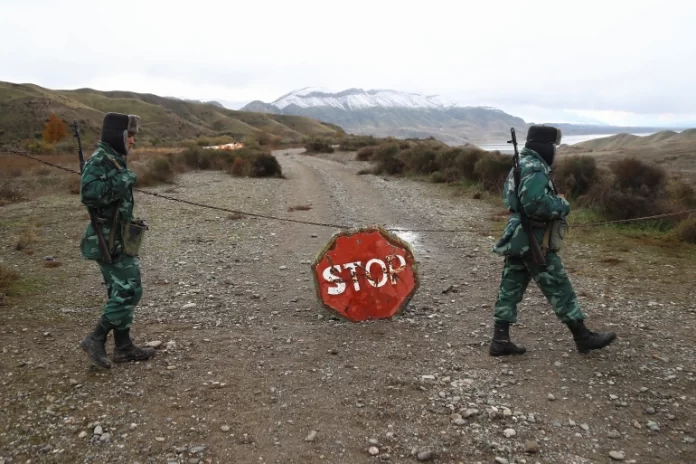According to Armenia’s defence ministry, the hostilities erupted in the early hours of Tuesday morning when Azerbaijani forces unleashed cross-border attacks using “artillery, mortars, drones and large-calibre rifles” that killed at least 49 Armenian troops.
The ministry said the attacks had targeted both military and civilian infrastructure in and around several towns and villages, including Vardenis, Sotk, Artanish, Ishkhanasar, Goris, Jermuk and Kapan, forcing it to respond.
Armenian Prime Minister Nikol Pashinyan linked the incidents with the simmering, decades-old dispute over the status of Nagorno-Karabakh, saying the Azeri government did not want to negotiate over the enclave, which lies inside Azerbaijan but is mainly populated by ethnic Armenians.
But Azerbaijan denied instigating the fighting, claiming its troops had responded to “large-scale provocations” by the Armenian military.
It said Armenian forces had fired at Azerbaijani military positions in the Dashkasan, Kalbajar and Lachin regions, resulting in unspecified casualties and damage to military infrastructure, after building up stocks of weapons along the border and attempting to mine Azerbaijani positions.
Pope Francis Calls for End to ‘World War,’ Prays for Ukrainians
2022 World Cup Qualifiers: Play-off draw rescheduled for January next year
Later on Tuesday, Azerbaijan’s defence ministry said 50 military personnel had died during overnight clashes with Armenia.
As the fighting appeared to slow, a statement issued by the office of Azerbaijani President Ilham Aliyev said the country’s armed forces were in control of the “situation along the border”. Armenia’s defence ministry, meanwhile, warned the situation in some border areas remained “extremely tense”.
Al Jazeera was unable to independently verify the battlefield accounts from either side.
The outbreak of fighting has sparked fears of another full-fledged war between the two rival states, prompting calls from an array of foreign powers for an immediate end to hostilities.
Russia, which is the main power broker in the Caucasus and an ally of Armenia through the Russian-led Collective Security Treaty Organization (CSTO), said it had brokered a ceasefire agreement at 9am Moscow time (06:00 GMT) and called on both sides to stick to the deal.
Moscow oversaw an earlier ceasefire deal in November 2020 to end Armenia and Azerbaijan’s war over Nagorno-Karabakh and deployed almost 2,000 peacekeepers to the region as part of the agreement.
The 2020 conflict, which killed more than 6,500 people in a little over six weeks, saw Azerbaijan successfully win back swaths of territory in and around Nagorno-Karabakh that had been controlled by ethnic Armenian forces backed by Yerevan since an earlier war in the area ended in 1994.
The United States, France and the European Union, which are at odds with Russia over the latter’s invasion of Ukraine, also called on Azerbaijan and Armenia to observe restraint in the wake of the latest clashes.
But Azerbaijan’s ally Turkey reiterated its support for the government in Baku.
Mevlut Cavusoglu, Turkey’s foreign minister, called on Armenia to “cease its provocations and focus on peace negotiations and cooperation with Azerbaijan” following talks by phone with his Azerbaijani counterpart Jeyhun Bayramov.

